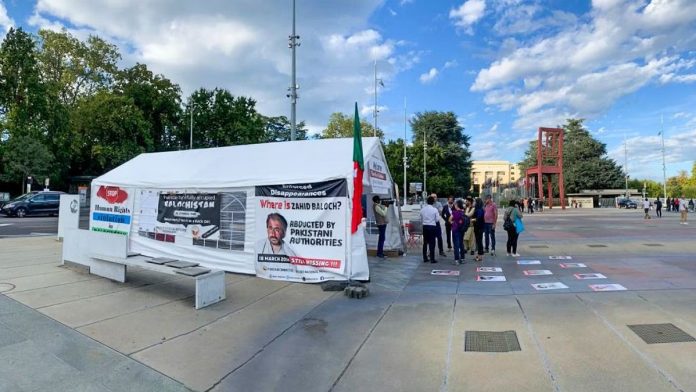Entering the ancient city of Kharan in 1886, as he traversed the great desert trade route through Balochistan to the borders of Afghanistan and Persia, the colonial civil servant George Tate observed two pillars guarding the path: Inside, were two men who had been tied to stakes and entombed alive. “These men had been the owners of a couple of exceedingly fine asses which were coveted by the chieftain of their tribe,” Tate wrote. The men tried to flee with their prize asses—but were caught.
“The chief had been rather lenient with them,” local residents told Tate, “since just before the pillars were completed over their heads each of these misguided men, who had dared to assert their right to their own property, had been stunned by a blow from an axe handle.”
Last week, alleged Islamic State jihadists savagely struck Balochistan’s Mastung district, killing at least 55 people at a procession to mark the birthday of the Prophet Muhammad. Although there have been several massacres of the Shi’a minority in Pakistan by jihadists, the Islamic State has become increasingly aggressive in its opposition to folk religious traditions, like the Barelvis participating in the procession.
Even though the growing power of the Islamic State in Balochistan is drawing global attention, the process enabling that sunrise isn’t. The crude state structures built in the colonial period, and reinforced by the Pakistan Army, are disintegrating—enabling jihadists, narcotics traffickers and organised crime cartels to step into the vacuum. Enfeebled by economic implosion and political crisis, the Pakistani state no longer has the resources to push back.
The bombing in Mastung does, of course, have something to do with theology: Taliban chief Mullah Haibatullah Akhundzada is a member of the Saifis, a Sufi order with a significant following in Afghanistan. The killing, however, is also part of a broader effort to intimidate ethnic Pashtun communities and leadership across Balochistan.
Earlier this summer, though, the ethnic-Pashtun politician Mohsin Dawar voiced concern about the growing power of jihadist death squads which were targeting the fundamental institutions of society. Local leaders, Dawar said, were being targeted for assassination, while businesses and industries were being extorted: “People are abducted, tortured, and a video of theirs is recorded and posted online.”









































